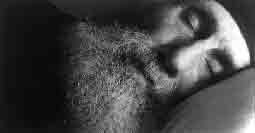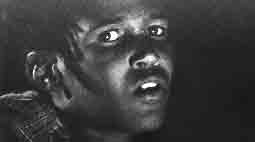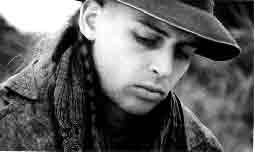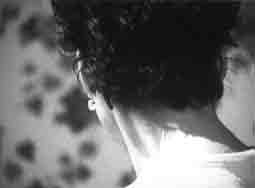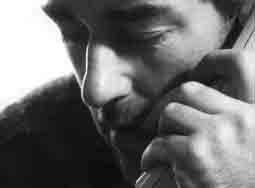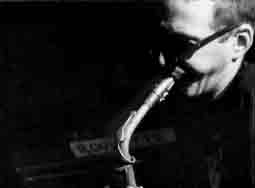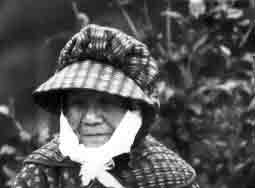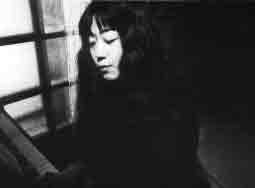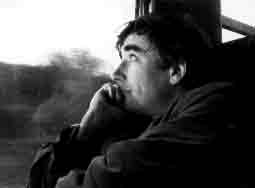A Cinema Beyond the Bounds of Gravity
At the end of the 1980s, when Nicolas Humbert and Werner Penzel founded
their production company Cine Nomad, both artists had a whole series of
artistic activities to their names - activities that had to do with cinema,
but also with literature, painting, theatre and music. A further link
between them and a distinguishing feature of their creative work was the
fact that they were often on the move, travelling - something they continued
to do jointly in their ensuing work together.
Their first collaboration was on the short film Krampus, which dates from 1983. Their first joint film, Lani und die Seinen, made in 1989, depicts their experiences on the road in Germany and France with a Romany family. In the intervening years, the two artists were occupied with their own projects. In 1984, Nicolas Humbert shot the feature film Nebel Jagen and, in 1986, the documentary Wolfsgrub. During the same period, Werner Penzel was travelling in Egypt and Nicaragua and made the feature film Pirates du Silence and the documentary Adios al Odio.
Their first major project together, the music film Step across the Border, which had its premiere in 1990, is about the English musician and composer Fred Frith. With this film, the two artists suddenly attracted the attention of international critics and won awards at numerous festivals. In 2000, critics of the Cahiers du Cinema in Paris voted Step across the Border one of the 100 most important films in cinema history. The film is not just a portrait; it is a hymn to the creative process and to the spirit of invention. The work has its origins in the meeting of three artists. Through their pictures and music, they invite us to participate in the artistic process. They lead us to a sensitization of our own perceptions and conduct us into a sparkling spectacle of reality.
The next film by Nicolas Humbert and Werner Penzel, Middle of the Moment, was made over a period of four years and describes nomadic life, to the rhythm of the desert dwellers and circus people, who represent all the nomads of the world. In this work, the film-makers circle about something that cannot be described in words: the true moment. The search for the centre, that fragile state of equilibrium between happiness and evanescence, is the true motive force for these two cineastes and what they seek to convey in this film through their compilation of images of radiant simplicity.
Their latest work to receive a public showing, Three Windows, is a grandiose development of their previous films, a cinematic narrative on three screens, on which three sequences of black-and-white images are projected simultaneously and merge to form a single whole. This work, filmed almost entirely on the Greek island of Patmos, is dedicated to the American poet of Minimal Art, Robert Lax. A meditative canto of great clarity and complexity, the three windows invite the observer to find his own path through the images and sounds. In that sense, 1 + 1 + 1 = 4. The three windows reveal a fourth element: the inward image, the open space within us, a place of concentration and happiness; and they invite us to linger there.
Like few other film-makers
whose work is of lasting validity for us, Nicolas Humbert and Werner Penzel
are masters of the art of handling coincidence. Their work reveals two
main aspects. The first is that, in concentrating on a particular subject,
they enter entirely into the situation about them. In that way, their
own time is synchronized with that of the people they encounter. Behind
this is a desire to achieve a heightened sense of perception - for themselves
and for the observer. If one is receptive to reality and what chance throws
in one's way, it will be possible to crystallize out valid, recognizable
signs from the mass of images and sounds that surround us and to make
those signs visible.
In a second stage, the two artists organize the material into a narrative
form that sweeps us along with it like a musical composition with its
caesuras, harmonies and counterpoint, and that transforms the films into
islands of time: a sense of time beyond the normal sense of time.
This artistic stance incorporates a political stance as well. Together with a circle of friends and assistants which has evolved over the years, Nicolas Humbert and Werner Penzel have created a kind of cinema of resistance with their films: a resistance to the monotony of the images and sounds that surround us. To do this, no declaration of war is necessary. They subvert the system in a more subtle way, using artistic means. In their approach to time, in which they create a state somewhere between daydreaming and intense observation, in the way they are able to roll back the layers of reality like magicians, they lead us in a unique and marvellous way to a work that exists in its own right. They lead us to the very heart of modern cinema.
The films thrive on a quality of openness, and they open our senses as observers. They are offers extended to us, open spaces for our form of contemplation and reflection. Through their ability to experiment with sounds and images and the pleasure they derive from this, Nicolas Humbert and Werner Penzel spark in us a remarkable inward readiness to make our own perceptions. Our imagination and intelligence are stimulated to equal degrees by the fact that we are offered a space in which we may roam about freely without feeling lost. At the same time, the precision and formal rigour with which they construct their works is reminiscent of ritual architecture and leads us to the roots of our memories and culture.
How can one describe
their work succinctly?
It is a quest - to the rhythm of the nomads - beyond the bounds of gravity.
Jean Perret
Director of the Visions du Réel film festival, Nyon
